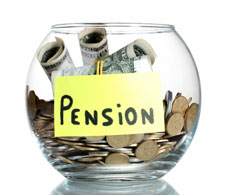
Georgian Gov’t Excludes Referendum over Accumulated Pension
By Gvantsa Gabekhadze
Friday, February 16
(TBILISI)--The Government of Georgia says that there will be no referendum held over the planned accumulated pension system, which obliges employed people up to 40-years-old to get involved in the program, whether they wish it or not.
The Government response in terms of the referendum came after the statement of the Georgian Young Lawyers’ Association (GYLA) NGO and the opposition that the scheme offered regarding the pension reform is “unconstitutional.”
The NGO and the opposition claim that the Georgian legislation lacks notes about the mandatory pension input, “which is a new type of tax”.
“The government introduces a new tax and the new type of tax must be introduced only via holding a referendum, “GYLA wrote.
Deputy Finance Minister Nikoloz Gagua says that the government introduces no new tax and there is no need to ask people about the pension reform.
“A tax flows to the state budget to cover general expenses, when the pension input goes to an individual’s special pension account. The only restriction is that the individual will not use the money until he/she reaches the pension age, or in a very particular situation,” the official stated.
The pension age in Georgia is 65 for males and 60 for females.
The Government draft over the new type of pension system reads that the people up to 40-years-old and who are employed will be anyway involved in the program.
People over 40 will have a choice whether to be involved or not.
The pension program will cover citizens of Georgia, foreign citizens permanently residing in Georgia or those having no citizenship but are employed or self-employed and having income.
The monthly input of an employed person, both in private and public sectors, will equal 2 percent of their untaxed monthly salary.
Self-employed people can use the program or not; it is up to them to decide.
If a self-employed person decides to accumulate the pension they will have to put 4 percent of their monthly incomes.
The state will provide 2 percent of the employed person’s taxed salary on their pension account.
The Government vows that the state will invest the money accumulated as pension and the people involved in the program will also enjoy the benefit provided through the investment.


